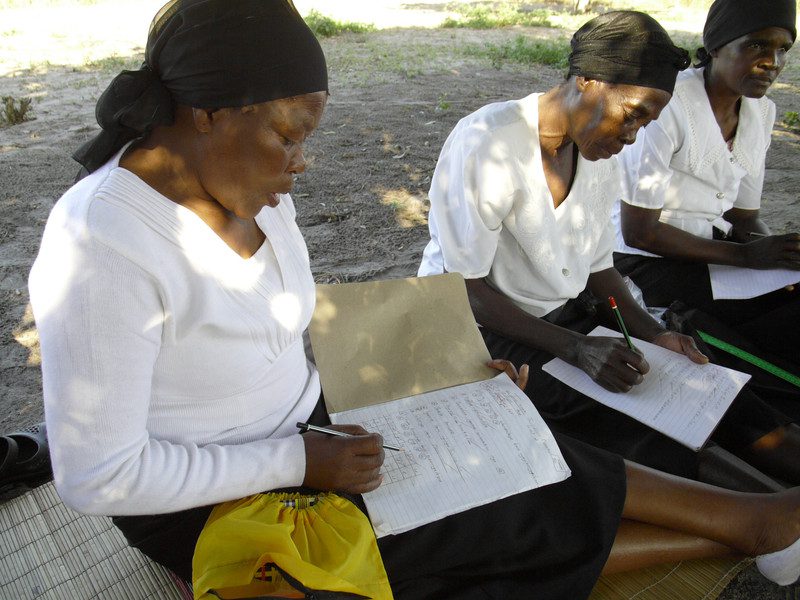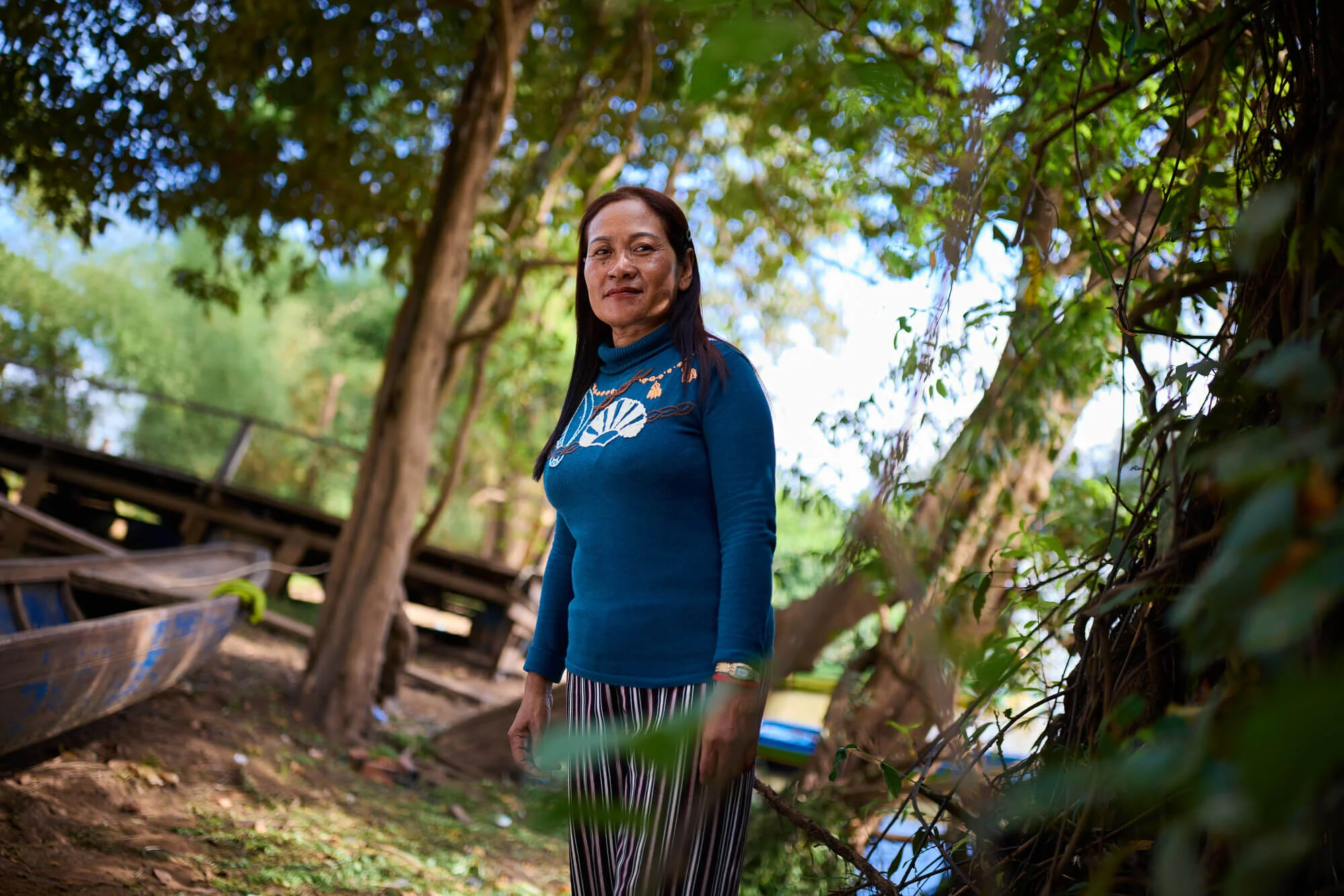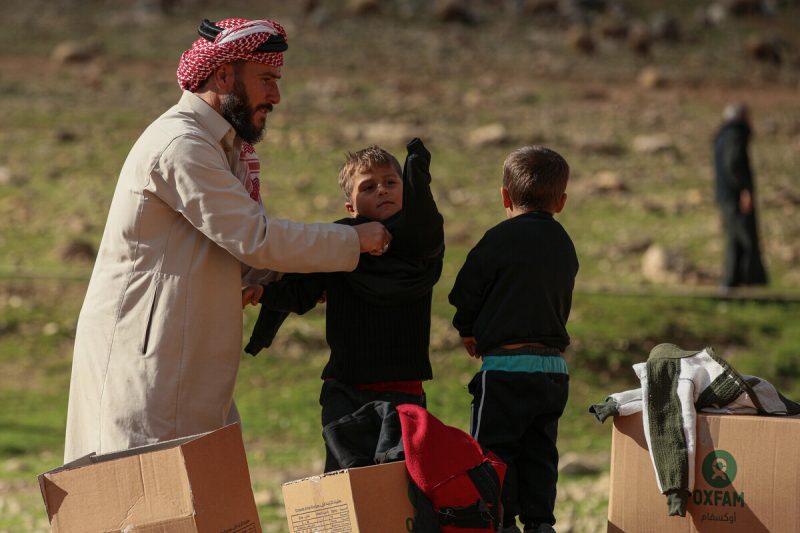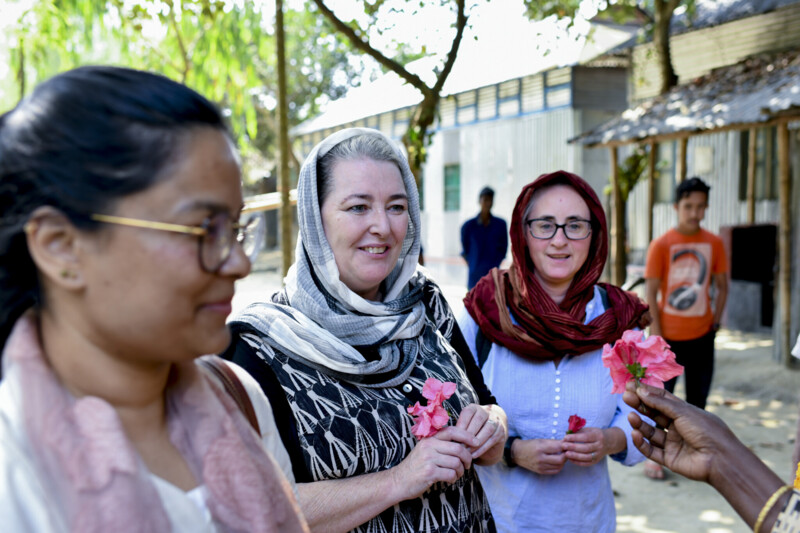For Thandekile Chonco, the literacy class she attends in Qomokuphila village, in KwaZulu-Natal, South Africa, is not just about learning how to read and write.
By attending the classes four times a week, she can now sign her name instead of using a thumbprint; she can count out money to avoid getting ‘robbed’ of correct change when buying food; she has learned how to grow vegetables to keep her family healthy; and, most importantly, she has learned how to protect herself and her family from contracting HIV.
“Previously, at home, my children would share toothbrushes and face cloths. I have learned that by sharing a toothbrush, some children might have bleeding gums and infection can happen.”
Thandekile is one of more than 800 learners who attend literacy classes that Oxfam’s partner organisation Operation Upgrade runs throughout the isolated KwaNibela area. In these parts, life is a daily struggle for survival – illiteracy levels are high, water shortages are acute and HIV prevalence runs at about 30 per cent. A seven-year drought and poor soil conditions have decimated food crops, and 83 per cent of the population lives below the poverty line.
Previously, at home, my children would share toothbrushes and face cloths. I have learned that by sharing a toothbrush, some children might have bleeding gums and infection can happen.
– Thandekile Chonco, a learner at Qomokuphila.
Connecting health, literacy, livelihoods and human rights
Operation Upgrade takes an integrated approach that connects literacy, health, livelihoods and human rights. In the classes, learners are taught how to read, write, count and speak basic English. They learn valuable skills such as harvesting and recycling water, making water safer to drink, starting a small business, and doing income-generating activities such as leather crafts, sewing and concrete brick-making. They also learn about HIV prevention and care, human rights, gender equality and family health.
Learners are also supported to set up communal gardens, called “food tunnels”, where they grow vegetables such as spinach, pepper, tomatoes, chillies and beetroot from seedlings. The harvested produce is either distributed among the learners to take home or is sold and the profits shared among members.
“The tunnel has helped me and my family a lot,” says Jabu Makhoba, a learner in Emadolweni. “My husband is not working, and my children are still in school. Previously, I would struggle to pay their school fees.
“I practise what I learned at the class at home. So now at home I have a small garden. I sell vegetables from the garden to other neighbours who are not attending the class. And whatever I get from selling vegetables, I take back to my family. With that money, I can send my children to school.”
During lessons, educators use illustrated pictures as a starting point for learners to discuss topics such as teenage pregnancy, HIV, parenting, domestic violence, child marriages, nutrition, and a woman’s rights during divorce and when her husband dies.
“We will take one of the sentences that they [the learners] have said,” Operation Upgrade KwaNibela Project Coordinator Pinky Petersen says. “We’ll put that sentence up, read it over with them and break it into words … We break the word into syllables; we get them to copy them; get them to rebuild the sentences; get them to write out the sentences. That’s how literacy happens. But it starts on a theme to give everyone something to think about.”
Pinky goes on to explain that one lesson may focus on the various ways HIV can be transmitted; the next one may be about living positively with HIV, taking antiretroviral drugs and eating vegetables to stay healthy; the next on HIV testing; then another on caring for someone with HIV; then one on planting a vegetable garden and running a small business.
Learning about HIV curbs discrimination and spread
As a result of about HIV in their literacy classes, many people opt to get tested for HIV. They start to provide basic care for neighbours and family members living with HIV, and they share their new-found knowledge with family, friends and other community members.
The main change for me since coming to the literacy classes has been to stop discriminating against people infected with HIV.
– Thandazile Ngwane, a learner at Qomokuphila.
“The main change for me since coming to the literacy classes has been to stop discriminating against people infected with HIV,” says Thandazile Ngwane, a learner at Qomokuphila.
“Previously I did not want a child from that family to even touch me. Now I have learned you can not get infected by sitting with the person, talking to the person or touching the person. Through these classes, I have learned some manners and how to be a disciplined person who does not discriminate and run away, but who knows how to support people.”
Qomokuphila’s 26 learners have also composed songs and short plays about HIV which they perform in the community to raise awareness. As one song goes:
“Our people, you will be missing a lot, if you ignore about HIV and AIDS. We encourage you, our people, to go and test so as to live positively and improve your lives.”
Operation Upgrade received a major accolade for its program in 2008, winning UNESCO’s Confucius Prize for excellence and innovation in literacy.
You can help
Become a regular donor and you’ll be making sure that life-changing programs like this one by Operation Upgrade continue.



